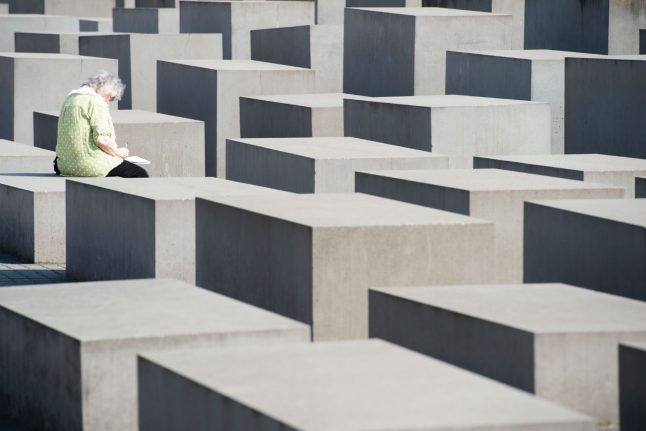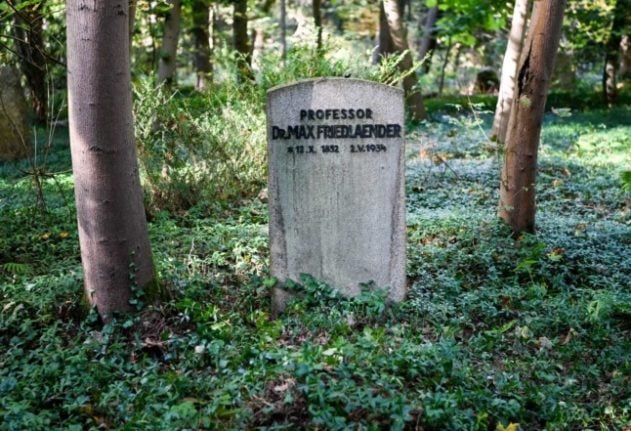Nearly all of them were children or adolescents in the early 1940s. They remember having their youth stolen from them – by fear, by desperate flight, by separation from relatives, and in some cases by the Nazi death camps.
If there was one country where they felt they were safe, it was the United States, where many of them have now lived for decades.
They have, to be sure, heard the occasional anti-Semitic slight or perhaps seen a swastika daubed on a wall, but still they felt safe – an all-important word for them.
SEE ALSO: Germany: What I've learned from living in the country from which my family once fled
Now, however, these survivors – several of whom came together in the Oheb Shalom synagogue in an affluent New Jersey suburb to celebrate Hanukkah and to mark International Holocaust Survivors Night – are deeply worried: Anti-Semitic acts in the US soared last year by 37 percent, according to FBI statistics.
The October 27th slaughter at a synagogue in Pittsburgh, where a white nationalist has been charged with gunning down 11 mostly elderly Jews as they
worshiped, greatly heightened those fears.
“A crazy man listened to Trump,” said David Lefkovic, 89, referring to the Pittsburgh shooter.
As an adolescent in southwestern France during World War II, he was saved only by his blond hair from being snatched up in a round-up of Jews.
Trump “calls anybody that he doesn't like 'weak' — that's exactly Nazi language,” said Adela Dubovy, who, as a 6-year-old, survived the notorious Theresienstadt concentration camp. “You're weak, you're to be destroyed.”
'It can happen again'
“Before, they were hiding,” Lefkovic said of America's anti-Semites.
“It's now out in the open that it's okay to pick on the Jews all over again,” said Hanna Keselman, who was born in Germany in 1930 and spent much of the war in France and Italy.
The anti-Semites “are very strong, even in colleges,” said Roman Kent, who survived life in camps including Auschwitz. “They should have people that are more intelligent.”
In recent weeks, anti-Semitic acts have taken place on the campuses of some of America's most prestigious universities, including Columbia and Cornell in New York state and Duke in North Carolina.
Of the Pittsburgh massacre, said Kent, who took part in negotiations with Germany over compensation to be paid to Jews, “I'm afraid that it can happen again, and it will happen again.”
'I don't want to live that way'
Adela Dubovy said she has four grandchildren at various universities.
She said she lives in a retirement home – a “bubble” that insulates her to some extent. But she admits to being “scared.”
“Now I don't wear my Star of David. I tell my grandkids: Don't wear your kippah (yarmulke) in the street — you don't want to be attacked.”
“I understand” the urge to be discreet, said Keselman, “but I would not tell my grandchildren that.”
“I don't want to live that way anymore… I did it. Enough of that.”
When she traveled back to Italy, where her father was arrested and then killed, “I purposely wore a Jewish Star of David. I felt, 'This is me back, and I feel safe here.'”
Today, said the soft-spoken 88-year-old, “I want to live free and open with everyone.”
Keselman, a painter, is not fond of public speaking but she forces herself to meet with young people to keep alive the haunting memories that some people feel will be lost forever when the final survivors die.
Roman Kent says he regrets that too few members of younger Jewish generations have picked up the torch.
“If they would, then there would not be 60 or 70 percent that don't know the word Holocaust,” he said.
A study published in April by the Claims Conference, the group behind the International Holocaust Survivors Night, found that 49 percent of America's
young “millennial” generation could not name a single concentration camp.
“I realize that I do make an impact on people who are not Jewish, because they come back and tell me they never realized a lot of things that were going on” during the war, said Keselman.
“The problem,” she added, “is that the people who want to hear the stories are not the people who would be behaving as anti-Semites.”



 Please whitelist us to continue reading.
Please whitelist us to continue reading.
A sad story, but I wouldn’t place the blame at President Trump’s feet. I didn’t vote for him, but I have never heard him espouse anti-Semitism. He’s not very polished and some say he is a rough as a corn cob and sometimes his speech could stand some filtering.